Agriculture & Environment
SDSN Uganda to Assess Mak Performance on Sustainable Development Goals (SDGs)
Published
3 years agoon
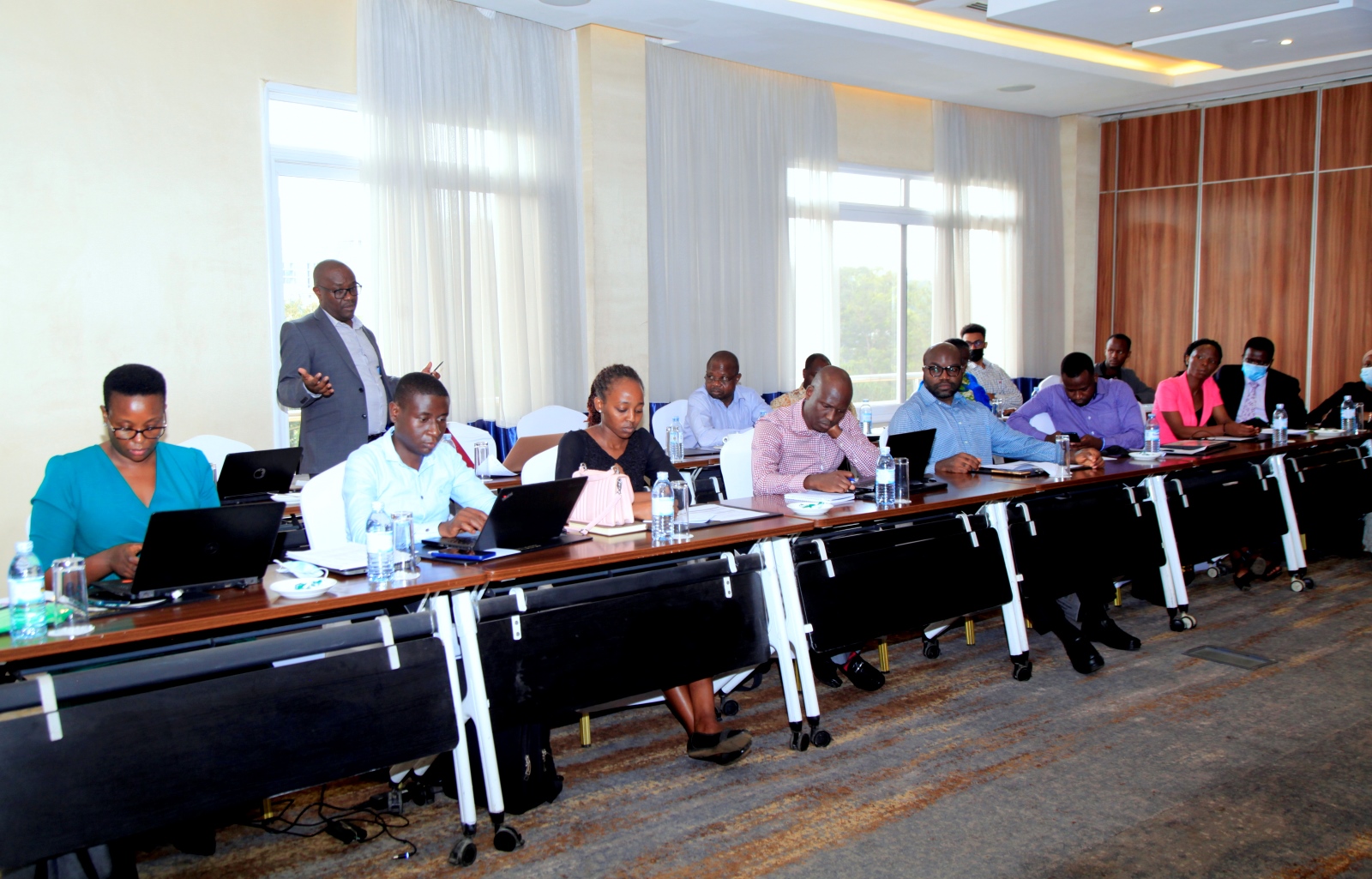
The realization of the Sustainable Development Goals (SDGs) has been undermined by severe financing constraints facing developing countries. This has been aggravated by the COVID-19 pandemic and the war in Ukraine. According to Dr. Faustin Gasheja, Sustainable Development Solutions Network (SDSN) Project Manager, Africa, the key to achieving the SDGs, besides preserving peace and lowering geopolitical tensions, is having a plan to finance them. Disseminating the Global SDG report 2022 at the SDSN Uganda Consultation meeting held at Golden Tulip Canaan Hotel in Kampala on 30th June 2022, Dr. Gasheja outlined six investment priorities which require major transformation if the SDGS are to be achieved. These include; 1) Education and social protection to achieve universal secondary education (SDG 4) and poverty reduction (SDG 1); 2) Health systems to end the pandemic and to achieve Universal Health Coverage (SDG 3); 3) Zero-carbon energy and circular economy to decarbonize and slash pollution (SDG 7, SDG 12, SDG 13); 4) Sustainable food, land use, and protection of biodiversity and ecosystems (SDG 2, SDG 13, SDG 15); 5) Sustainable urban infrastructure, including housing, public transport, water, and sewerage (SDG 11); and 6) Universal digital services (SDG 9) to support all other SDG investments, including online education, telemedicine, e-payments, e-financing, and e-government services.
In his presentation, Dr. Gasheja noted that multiple health and security crises, amplified by the climate and biodiversity crises, were putting the sustainable development agenda at risk. “As the SDG Index highlights, since 2019 these crises have halted progress on sustainable development worldwide,” he noted. The SDG Index is an assessment of each country’s overall performance on the 17 SDGs, giving equal weight to each Goal. The score signifies a country’s position between the worst possible outcome (score of 0) and the target (score of 100).
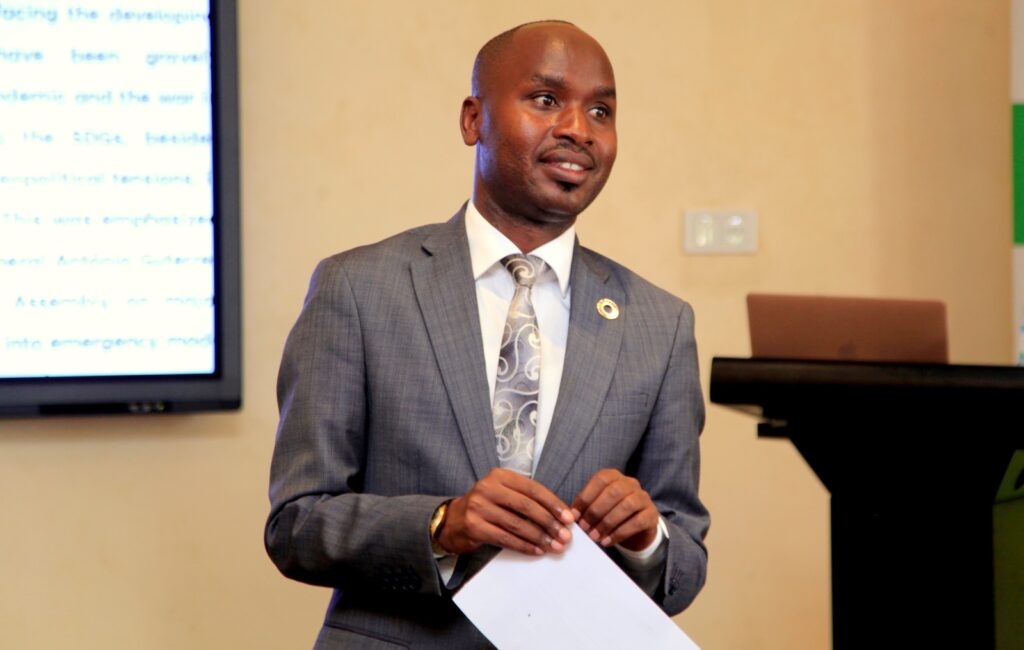
According to the Global SDG report 2022, Sub-Saharan African countries stagnated in achieving the 17 SDGs with Uganda ranked at 136.
Stakeholders Consultation Meeting
The SDSN Uganda workshop convened by Dr. Revocatus Twinomuhangi, a Senior Lecturer in the Department of Geography, Geo-Informatics & Climatic Sciences at Makerere University, and Coordinator of the Makerere University Centre for Climate Change Research and Innovation (MUCCRI) was intended to consult stakeholders on the preparation of the Sustainable Development Report (SDR) for Makerere University, disseminate the 2022 SDG report, with specific focus on Africa region and Uganda’s progress on achieving the SDGs, and discuss the operationalization of SDSN youth network in Uganda. SDSN Uganda is led by Dr. Twinomuhangi and is hosted by the MUCCRI at the College of Agricultural and Environmental Sciences (CAES). The Network was formally launched at Makerere University on 21st April 2021. The major aim of the network is to mobilize state and non-state actors to identify and implement transformative solutions to achieve Sustainable Development Goals (SDGs).
Role of Universities in achieving the SDGs
With their unique role in creating and sharing knowledge, universities have a direct role in addressing the challenges set out in transforming the world: the 2030 Agenda for Sustainable Development. Makerere University in particular recognizes that it is an integral part of society, and as such is a significant contributor to the positive shaping and evolution of the world. Through its strategic plan, Makerere University is committed to the values of sustainable national development and is fully aware that its activities can produce significant impact. Through its core roles of teaching and learning, research, and community engagement, Makerere University is playing a leading role in the achievement of SDGs.
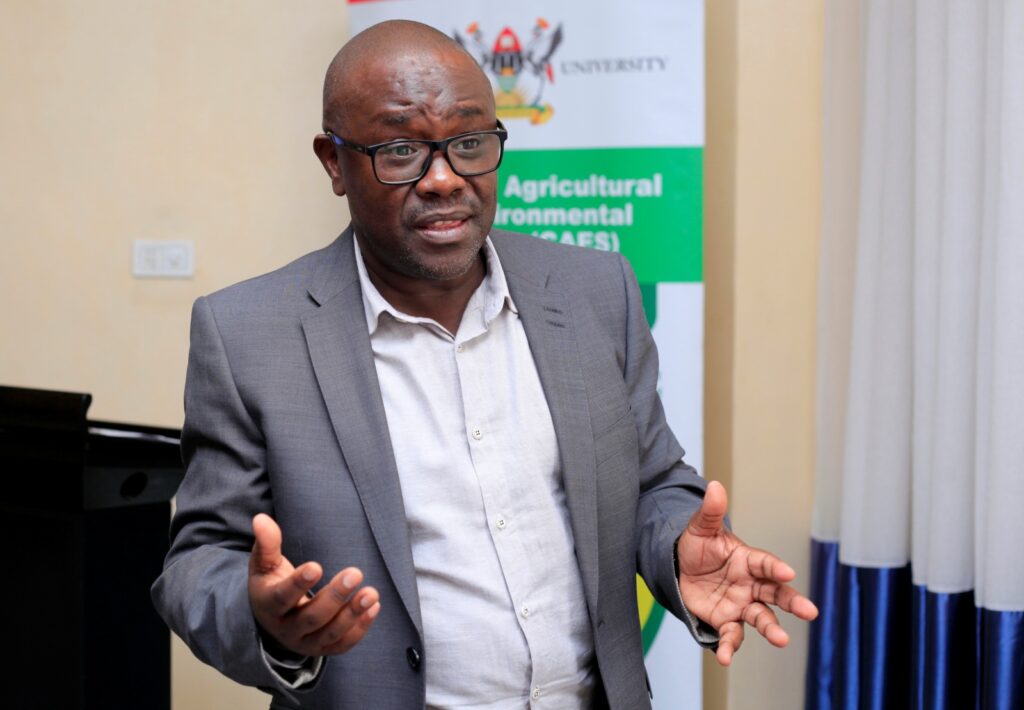
The Makerere University Sustainable Development Report (SDR)
The SDR will therefore document the university’s contribution to the achievement of SDGs, increase its visibility, but also identify gaps to be addressed to foster sustainability.
The report will articulate the philosophical position on sustainable development across research, teaching and operations. It will take stock of evidence based on knowledge, solutions, innovations, technologies and pathways supporting the implementation of SDGs; identify gaps, successes and opportunities for learning and increasing impact on sustainable development; and foster internal and external stakeholder collaboration and mobilization in support, resources and partnerships for realizing sustainable development.
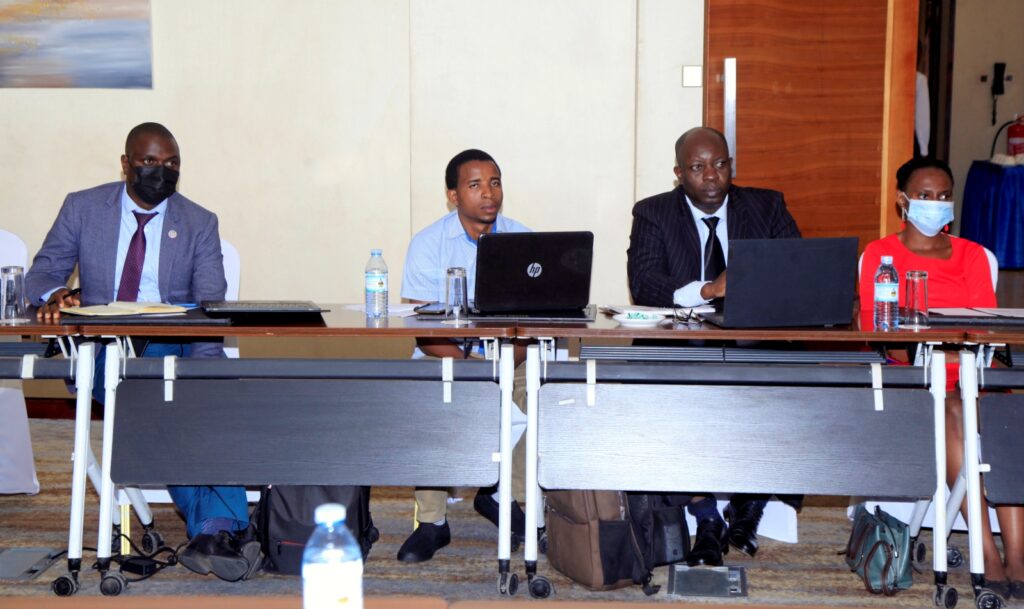
According to Dr. Twinomuhangi, key issues to be assessed will include the relevance and contribution of the university curricula to the achievement of SDGs, the contribution the University research projects toward the realization of the SDGs, and the sustainability of the University operations with regard to SDGs. The research will take a qualitative and quantitative approach using case studies form Colleges, deeply analysing research projects and publication metrics. “As a University, Makerere is committed to the values of sustainable national development and is fully aware that its activities can produce significant impact. The University curricula should therefore be aligned to SDGs and all research projects should contribute to the achievement of SDGs,” Dr. Twinomuhangi explained.
Participants called for midterm evaluation of the performance of SDGs, and sustainability reports. They advised that the report should also focus on mindset change in terms of employment. “Graduates should be in position to create their own jobs instead of focusing on and waiting for white collar jobs.”
Participants included representatives from Makerere University, Kyambogo University, Uganda Management Institute, Office of the Prime Minister and the SDSN Uganda Youth Network.
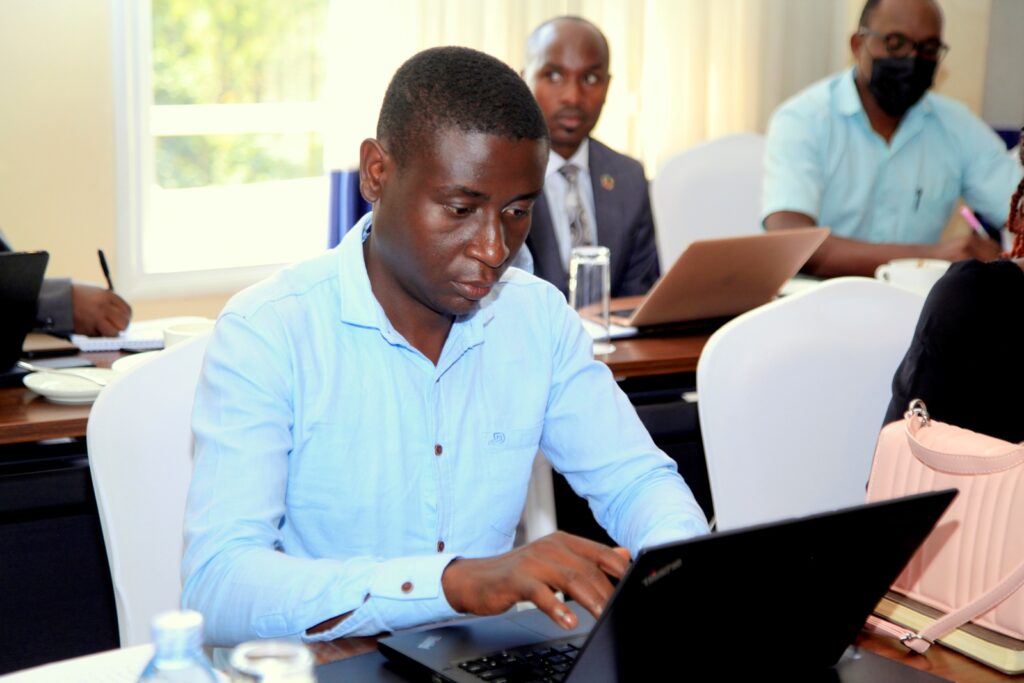
During the meeting, Mr. Hakim Sseviri presented the progress of the SDSN Uganda Youth Network, highlighting its operations and benefits. The Sustainable Development Solutions Network – Youth Initiative (SDSN Youth) was established in 2015 to train and equip young leaders with the knowledge and resources to build a more sustainable future. SDSN Youth has 185 team members from over 35 countries and leads both global and local initiatives. The global initiatives cover a number of sectors, such as sustainable education for K-12, sustainable communities and entrepreneurship. Each programme follows the three-step theory of change. The local initiatives, regional and national networks, cover 20 jurisdictions in various continents. Each Regional/National Youth Network focuses on achieving the Sustainable Development Goals (SDGs) locally.
About the UN Sustainable Development Solutions Network (SDSN)
The Sustainable Development Solutions Network (SDSN) was launched in 2012 by UN Secretary-General Ban Ki-moon to mobilize global scientific and technological expertise to promote practical problem solving for sustainable development and implement the Sustainable Development Goals (SDGs). Following their adoption, SDSN is now committed to supporting the implementation of the SDGs at national and international levels. SDSN aims to accelerate joint learning and help to overcome the separation of technical and policy work by promoting integrated approaches to the interconnected economic, social, and environmental challenges confronting the world. SDSN works closely with United Nations agencies, multilateral financing institutions, the private sector, and civil society. The organization and governance of SDSN enables leaders from all regions to participate in the development of the network, while at the same time ensuring effective structures for decision making and accountability.
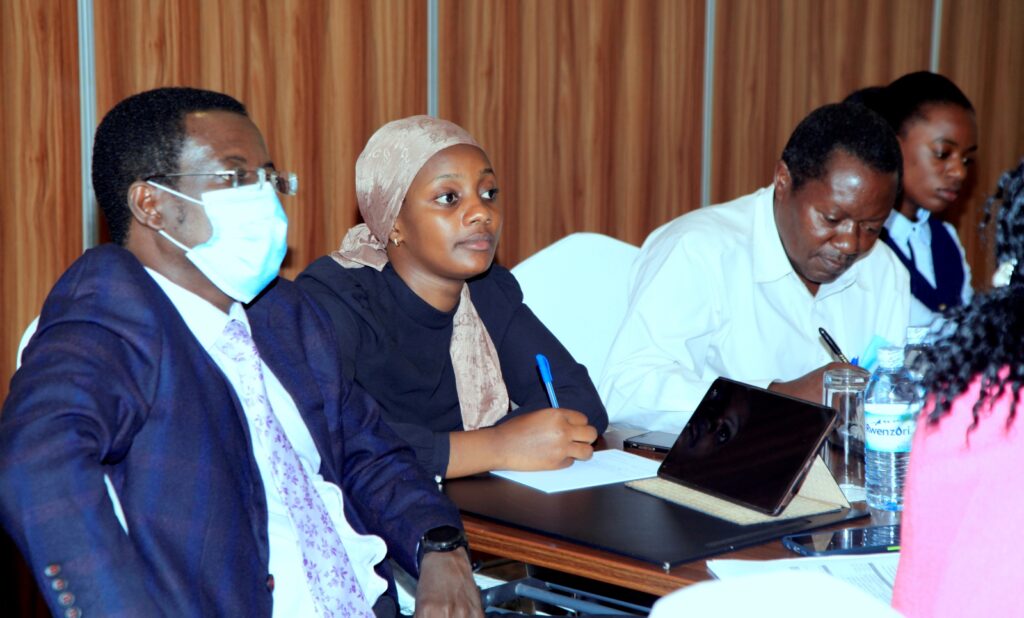
About SDSN Uganda
The SDSN Uganda National Network was approved by the Networks Strategy Council of the UN SDSN – Nov. 2019. Makerere University was appointed to host the national network. Launched in April 2021, the Network is coordinated under College of Agricultural and Environmental Sciences (CAES), Makerere University and the Secretariat is in Makerere University Centre for Climate Change Research and Innovations (MUCCRI). The Network aims to mobilize universities, research and knowledge centres, civil society, private sector, communities and special interest groups to identify and implement transformative solutions to achieve the 2030 sustainable development agenda and the Paris Agreement on climate change in Uganda and the East African region. Objectives include; building awareness and knowledge on SDGs, including supporting high-quality, free, online education via the SDG Academy and short term trainings; researching on sustainable development solutions; building partnership and conducting multi-stakeholder dialogues; supporting dialogues and providing advice to policy and decision-makers; and supporting a vibrant SDSN Youth Network in Uganda.
Please see below for the presentations made at the Meeting
You may like
-
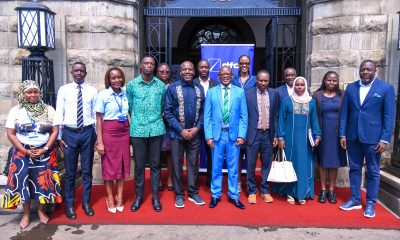

Makerere University, DFCU Bank Sign MoU to Advance Innovation, Student Leadership and Research
-
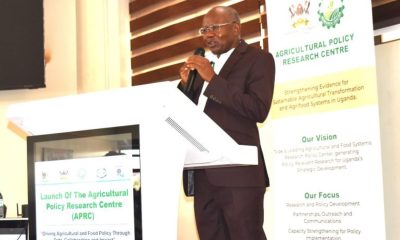

APRC Trains Graduate Students & Stakeholders in the Use of the African Agriculture Adaptation Atlas
-
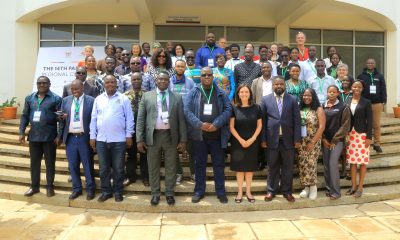

Harmonizing Africa’s Future through Musical Arts Education
-
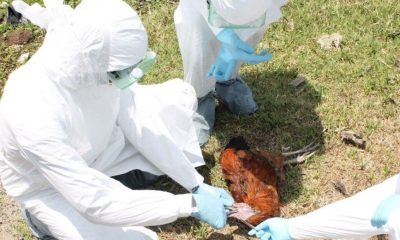

Advancing Regional Health Priorities Through the CARTA Research Hubs
-
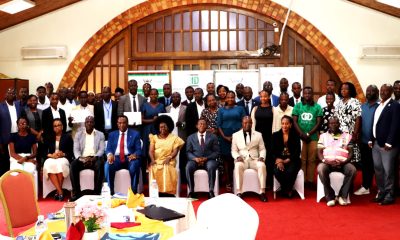

Swedish Ambassador Calls on Uganda to Lead Africa’s E-Mobility Revolution
-
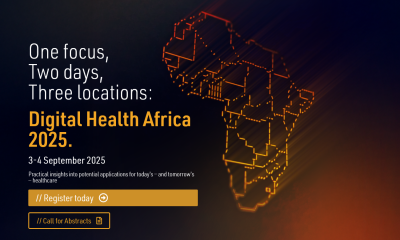

Call for Abstracts: Digital Health Africa 2025
Agriculture & Environment
APRC Trains Graduate Students & Stakeholders in the Use of the African Agriculture Adaptation Atlas
Published
2 days agoon
July 3, 2025
The Agricultural Policy Research Centre (APRC), housed within the College of Agricultural and Environmental Sciences (CAES) at Makerere University, continues to play a pivotal role in shaping Uganda’s agricultural future through evidence-based policymaking. With a mission to ensure that agricultural policies are grounded in empirical research and data, APRC is actively investing in capacity-building initiatives that empower researchers, policymakers, and development actors.
In a significant stride toward building climate resilience in African agriculture, APRC recently organized a two-day intensive training workshop focused on the African Agriculture Adaptation Atlas (AAAA) – a state-of-the-art, web-based decision-support platform that facilitates the integration of climate data into agricultural planning and policy.

The workshop, held on Wednesday 25th and Thursday 26th June 2025 at the School of Agricultural Sciences, Makerere University, targeted two key groups: graduate students on the first day, and university faculty, government officials, and development practitioners on the second. This structure ensured tailored learning experiences for both emerging and seasoned professionals, helping to bridge the gap between academic research and real-world policy implementation.
The African Agriculture Adaptation Atlas (AAAA) is designed to provide dynamic, data-rich visualizations that support informed decision-making in agriculture and food systems across the continent. Through interactive maps and analytical tools, users can explore projected climate impacts, evaluate risks, and identify localized, climate-smart adaptation strategies.

Throughout the sessions, participants received hands-on training in a broad range of AAAA functionalities, including:
- Leveraging the Atlas for research and policy communication: Enhancing the ability of scientists and policy actors to translate complex climate data into actionable insights;
- Assessing projected climate impacts and associated agricultural risks: Essential for forward-looking planning and risk mitigation;
- Identifying climate-smart investment options, with a particular focus on the livestock sector, which is especially vulnerable to climate shocks;
- Analysing gendered vulnerabilities: Examining how climate change disproportionately affects women in agricultural communities;
- Understanding the implications of heat stress on agricultural productivity: Supporting targeted interventions to protect producers and their livelihoods;
- Estimating the economic returns of adaptation strategies: Aiding in prioritizing investments and allocating limited resources effectively.

Prof. Bernard Bashaasha, the APRC Coordinator, emphasized the importance of the training in advancing Africa’s adaptation agenda. “As climate change continues to threaten food security and disrupt livelihoods across the continent, tools like the AAAA, and the skills to use them effectively are essential. They empower decision-makers to craft policies that are adaptive, inclusive, and rooted in science,” he noted.
The workshop was coordinated by Dr. Florence Rwiza, Lecturer in the Department of Agribusiness and Natural Resource Economics at CAES.
More photos from the Training






Agriculture & Environment
NbS4Tea Project Team Makes Great Progress, Deploys Drones for Data Collection
Published
2 weeks agoon
June 24, 2025
****Funded by the Danish Fellowship Centre under Denmark’s Ministry of Foreign Affairs, NbS4Tea is a five-year initiative aimed at enhancing climate resilience and tea productivity in Uganda.
Launch of drones for data collection
The Nature-based Solutions for Tea (NbS4Tea) project has registered a significant milestone with the successful deployment of drones to improve environmental and agricultural data collection.
On 19th June 2025, the project team officially launched the drones at the Rwebitaba Tea Research Centre in Kyenjojo District, the project’s main research hub. The launch event included hands-on training sessions by Mr. Timothy Mutungi, a certified Remote Sensing Drone Pilot. Mr. Mutungi provided detailed instruction on drone operation, safety procedures, and data acquisition techniques specifically tailored to the project’s goals. The training was attended the core NbS4Tea researchers as well as students supported by the project.

By utilizing drone technology, the team will be able to capture high-resolution imagery and gather critical environmental data across vast tea-growing areas. This will enable more precise assessments of biodiversity, soil health, water use, and overall ecosystem services. The valuable insights generated will guide the development of sustainable, nature-based agricultural practices with the potential for widespread adoption throughout the tea industry.
About the NbS4Tea Project
NbS4Tea is a five-year initiative aimed at enhancing climate resilience and tea productivity in Uganda. Funded by the Danish Fellowship Centre under Denmark’s Ministry of Foreign Affairs and led by Dr Emmanuel Arthur from Aarhus University, the project is being implemented through a consortium of Ugandan and Danish institutions namely: Makerere University, the National Agricultural Research Organization (NARO), Uganda, Uganda Tea Association, Aarhus University, Denmark, and Kick-start International.

The primary objective of the project is to sustainably close the tea yield gap in Uganda by developing research-driven, nature-based solutions that enhance the climate resilience of tea production systems. This involves identifying climate-resilient tea varieties, integrating tea prunings and banana by-products, utilizing nitrogen-fixing agroforestry trees, and improving irrigation management. The approach emphasizes socio-economic feasibility, capacity building in research, and a market-oriented, multi-stakeholder collaboration to ensure both environmental and economic sustainability.
At Makerere University, the project is coordinated by Dr Alex Nimusiima from the Department of Geography, Geo-Informatics and Climatic Sciences at CAES. Other Project members are; Dr Grace Nakabonge from the Department of Forestry, Biodiversity and Tourism; Dr Prossy Nakawuka from the Department of Agricultural and Bio-systems Engineering; Dr Twaha Ali Basamba from the Department of Agricultural Production; and Dr Alice Turinawe from the Department of Agribusiness and Natural Resource Economics.

Specific objectives
- Identify and quantify climate change impacts on tea yield and quality based on historical and newly obtained data and novel data mining methods.
- Screen, select and recommend tea varieties adapted to abiotic (drought and heat) and biotic stresses (diseases and pests).
- Develop new knowledge on the potential of local waste biomass (tea prunings, banana pseudostems and peels) as soil amendments- mulch, compost, biochar, to recycle nutrients, improve soil fertility, increase carbon sequestration and alleviate drought.
- Reveal NbS through agroforestry combined with organic mulch, irrigation and resilient tea varieties that increase biodiversity and tea yield.
- Innovate new methods to enhance tea production under climate change through rainwater harvest and climate-smart irrigation infrastructure.
- Empower vulnerable groups (women, youth, and people with disabilities) in tea production and processing to ensure multi-actor involvement and socio-economic benefit outreach of the proposed NbS in tea cultivation and production.
- Identify export market strategies for NbS tea products, aligned with consumer preferences.

Progress thus far
Launched in January 2024, the project, organized in five work packages, has registered significant progress. Each of the work packages listed below supports one PhD student and one Masters’ student. The PhD students are: i) Mr. Adiga Hassan from the Department of Geography, Geo-Informatics and Climatic Sciences at CAES conducting research under work package 1; ii) Ms. Sarah Namayengo from the Department of Forestry, Biodiversity and Tourism conducting research under work package 2; Ms. Vivian Namutebi from the Department of Soil Science and Land Use Management undertaking research on work package 3; Mr. Keneth Chelimo from the Department of Agricultural and Biosystems Engineering conducting his research under work package 4; and Ms. Moreen Asasira from the Department of Agribusiness and Natural Resource Economics focusing on work package 5. The Masters students are: i) Ms. Evelyn Katasi from the Department of Environmental Management at CAES (work package 1), Mr. Vereriano Turyahebwa from Department of Forestry, Biodiversity and Tourism (work package 2); Mr. Ben Okurut from the Department of Soil Science and Land Use Management (work package 3); Mr. Augustine Okot from the Department of Agricultural and Biosystems Engineering (work package 4); and Mr. Augustine Kigozi from the Department of Agribusiness and Natural Resource Economics (work package 5)

Work packages and achievements registered
Work Package 1: Climate change impacts on tea yield and quality – Headed by Dr. Alex Nimusiima
This work package centres on the analysis of historical and projected climate conditions in the study area. It examines how current climate patterns influence tea production, as well as the potential effects of future climate change on tea yield and quality.
Progress
i) A household survey assessing the socio-economic status of tea farmers and the effects of climate variability on their livelihoods has been completed.
ii) The collected data has been cleaned, and the Masters student supported under this work package is currently writing her thesis based on the survey findings.
iii) A historical climate analysis of the study area has been conducted by the PhD student, who is now preparing a manuscript.

Work Package 2: Screening & selecting tea genotypes for resilience to abiotic and biotic stresses – Headed by Assoc. Prof. Grace Nakabonge
This work package focuses on evaluating existing tea genotypes for their resistance to pests and diseases, using chlorophyll fluorescence imaging as a diagnostic tool.
Progress
i) A screen house has been constructed to serve as the experimental site.
ii) Germplasm from two tea varieties is currently being cultivated in the screen house in preparation for the upcoming experiments.
iii) A drone has been acquired to assist in data collection for this work package.

Work Package 3: Evaluation of NbS for climate resilience, higher yield and biodiversity- Headed by Assoc. Prof. Twaha Ali Basamba
This focuses on the characterization of mulch and biochar derived from tea prunings to improve soil health. It also aims to quantify the added value of Nature-based Solutions (NbS) in enhancing tea productivity, promoting climate resilience, and supporting biodiversity.
Progress
- So far, Biochar has been produced from tea prunings and characterized.
- The Masters student supported under this work package is writing his thesis on the results of biochar characterization.

Work Package 4: Innovating smart and scalable irrigation technology for improved tea production- Headed by Dr. Prossie Nakawuka
This work package aims to develop and evaluate smart, scalable irrigation solutions to boost tea production. It focuses on assessing how irrigation impacts tea yield and quality, measuring water use efficiency, and analyzing the economic returns of irrigation practices. Additionally, it explores deficit irrigation and climate-resilient strategies to ensure sustainable tea farming in changing environmental conditions.
Progress
- The irrigation infrastructure is now in place and fully operational at Rwebitaba Tea Research Centre in Kyenjojo District.
- The experimental plots for irrigation experiments are already in place with water pipes.

Work package 5: Socio-economic assessment of tea-agroforestry and selected tea varieties – Headed by Dr. Alice Turinawe
This work package emphasizes co-creation within multi-stakeholder innovation networks to evaluate the economic feasibility and market access of tea agroforestry systems. It also focuses on promoting gender balance and understanding consumer valuation of Nature-based Solutions (NbS) tea from Uganda.
Progress
To date, two co-creation workshops have been successfully conducted and the Masters student under this work package is currently analyzing the workshop results as part of their research.

Expected outputs and outcomes
- Increased tea production, productivity, and biodiversity through the adoption of NbS.
- Increased research and technical capacity of Makerere and R-ZARDI.
- Holistic stakeholder insight on economic feasibility, consumer acceptance and market access strategies, especially for vulnerable groups in the tea value chain.
- Increased job prospects for youth and women in tea production sub-sectors.
- Improved social status and increased incomes of tea farmers, traders, and exporters.
- Improved economic and environmental quality by recycling biomass waste into value-added products dedicated to soil enhancement.
- 4+ high-yielding tea genotypes adapted to drought and heat, diseases and pests.
- 15+ scientific articles, conference presentations.
- Five PhDs and Five MSc degrees.
- Market access assessment and empowerment.

Details on the project: https://news.mak.ac.ug/2024/01/new-caes-project-to-improve-tea-production-in-uganda/
More photos from the event



Agriculture & Environment
New Mak-CAES Project to Spur Green Growth in East Africa
Published
3 weeks agoon
June 13, 2025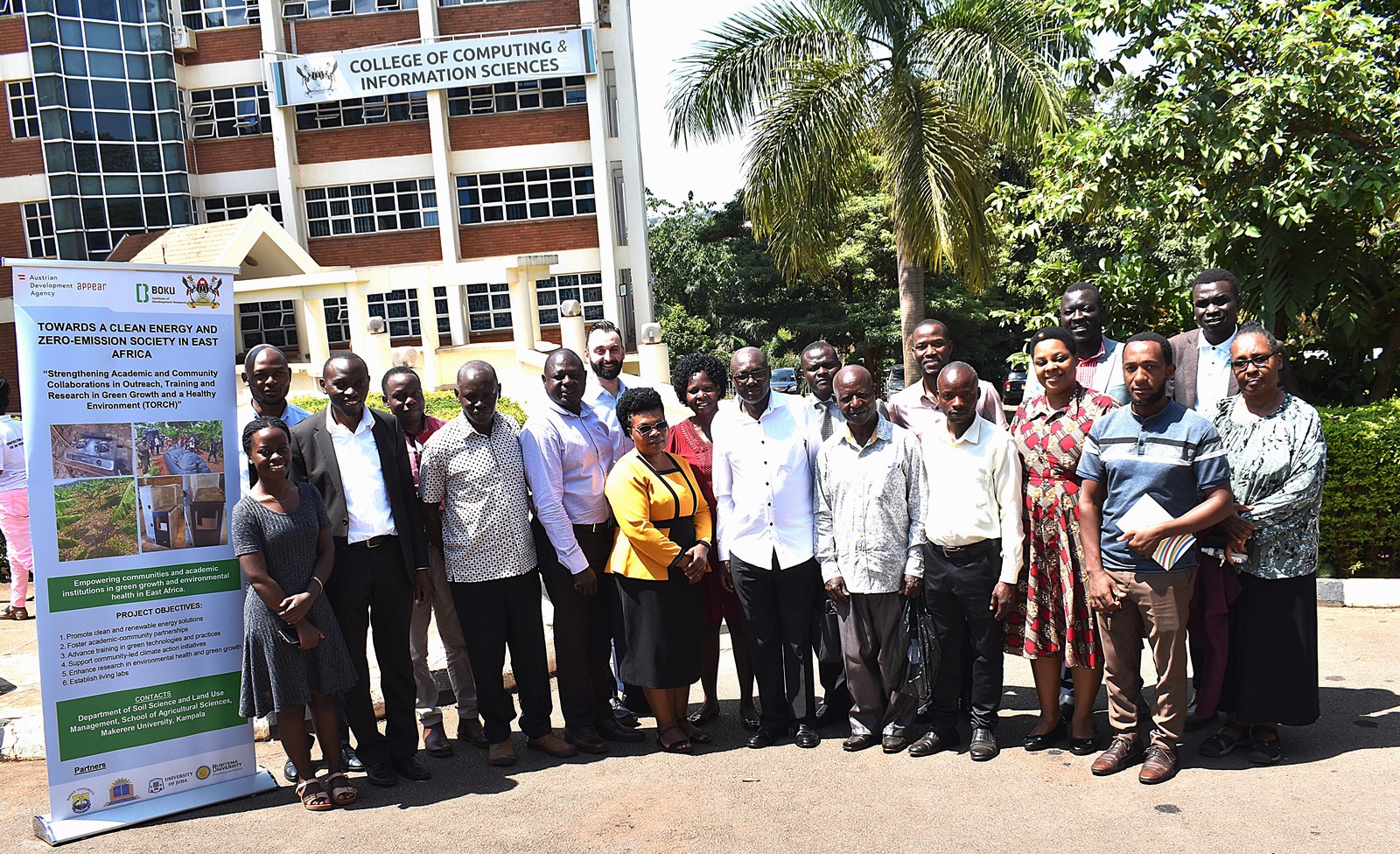
Makerere University, through its Department of Soil Science and Land Use Management at the College of Agricultural and Environmental Sciences (CAES), has launched a new project aimed at fostering green growth and promoting sustainable development across East Africa. This initiative aligns with global efforts to combat climate change and create eco-friendly, low-carbon communities through collaborative research, education, and technology.
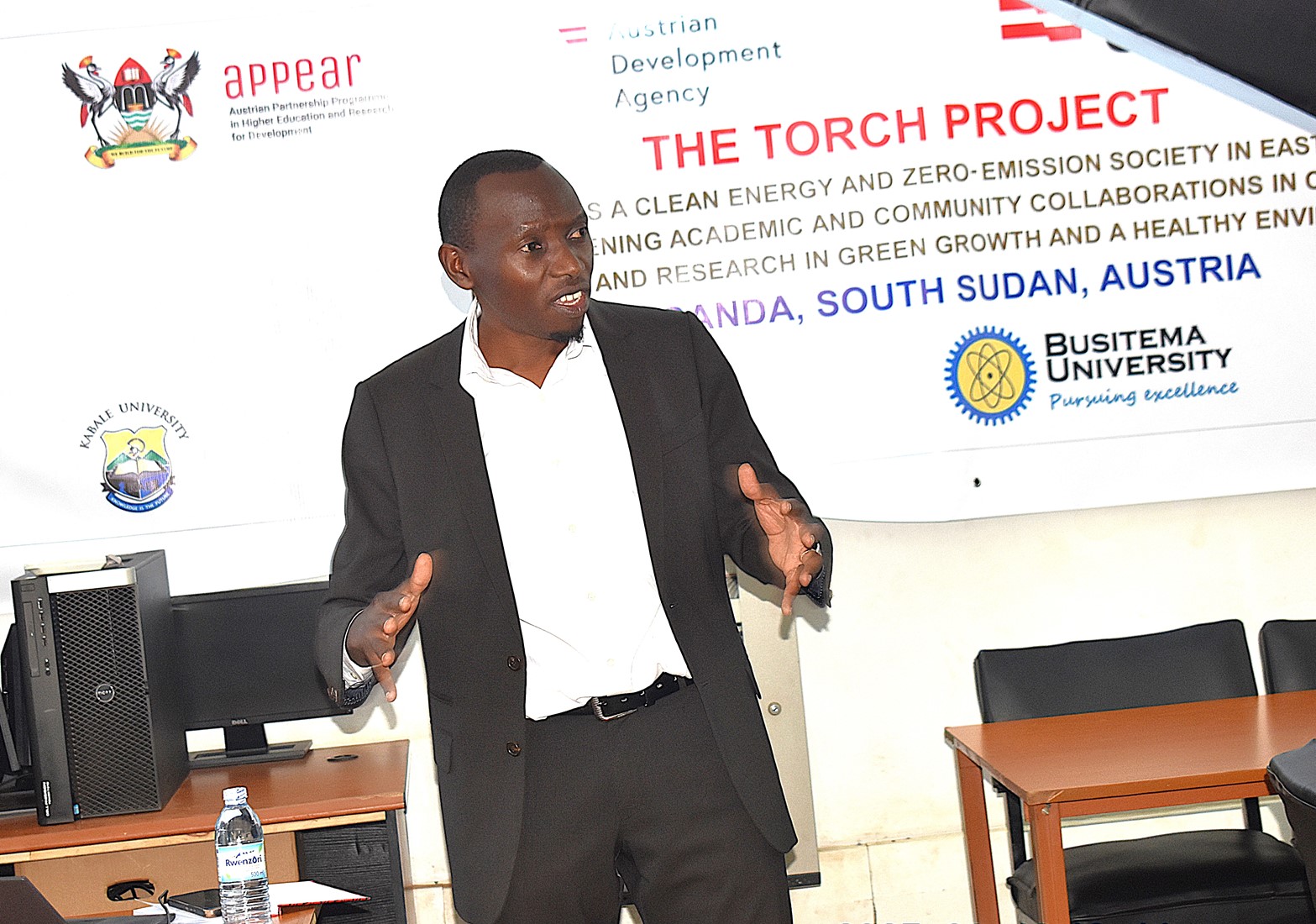
Introducing the TORCH Project: Towards a Clean Energy and Zero-Emission Society
The two-year project, code-named TORCH (Towards a Clean Energy and Zero-emission Society in East Africa), seeks to strengthen cooperation between academia and local communities to promote green growth and environmental sustainability. Funded by the OeAD-GmbH under the Austrian Partnership Programme in Higher Education Research for Development (APPEAR), TORCH focuses on clean energy solutions, carbon emission reduction, and community empowerment through training, research, and co-creation of green technologies.
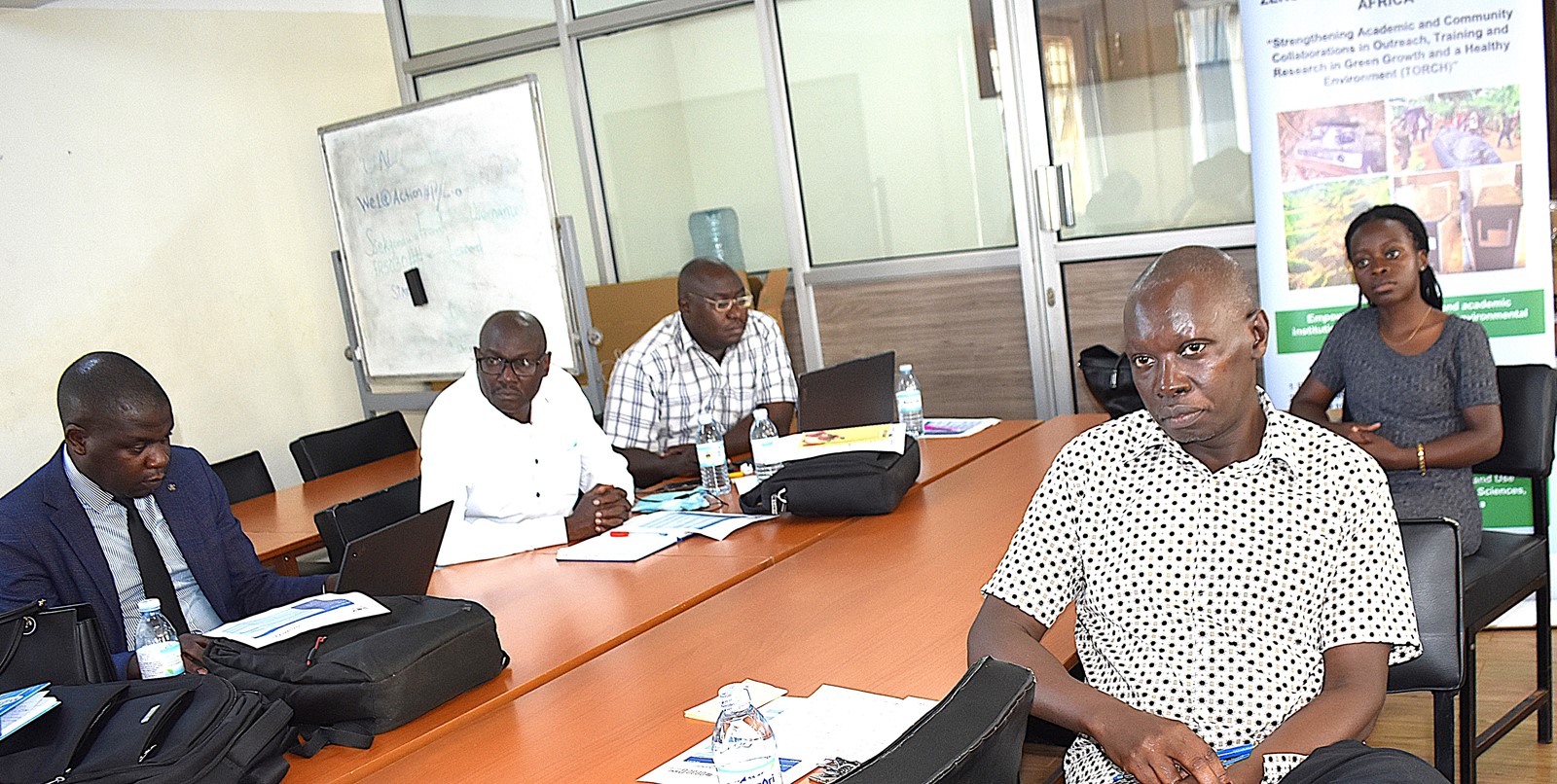
Officially launched by the Principal of CAES, represented by Dr. Paul Mukwaya, Head of the Department of Geography, Geo-Informatics and Climatic Sciences at Makerere University, TORCH builds upon existing East African government policies. The project will implement the innovative concept of living labs, where universities, communities, and stakeholders co-design, co-create, and co-produce affordable, reliable green technologies tailored to local needs.
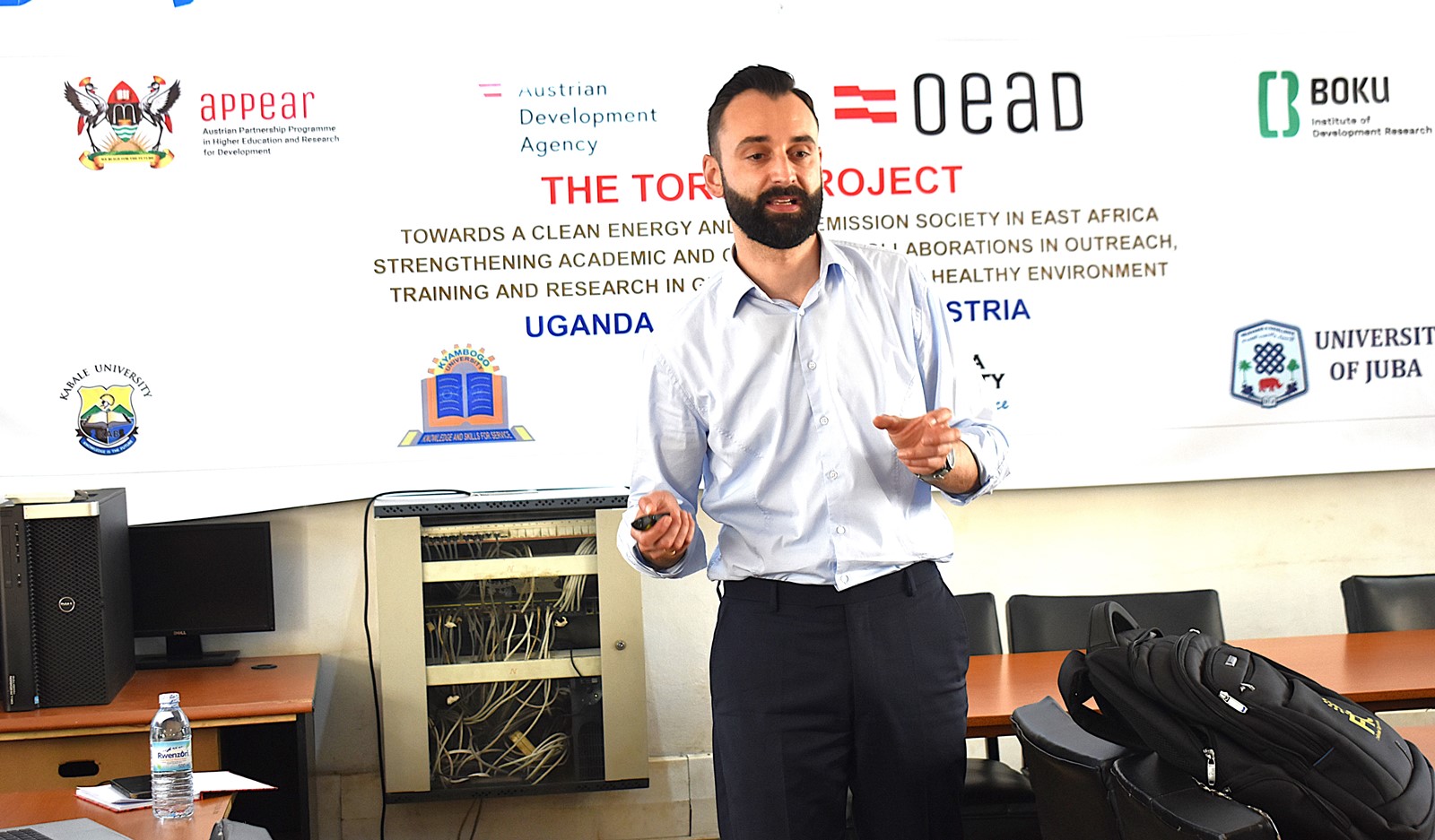
Key Objectives and Activities
TORCH aims to:
- Enhance teaching on green growth by integrating principles into selected academic curricula.
- Establish three living laboratories in Central, South Western, and Eastern Uganda to boost co-creation on energy efficiency and low-carbon emissions.
- Increase human capacity through short courses, field research, and training.
- Empower women in science and technology.
- Promote novel green technologies and support policy transformation.
- Strengthen partnerships among universities in East Africa.
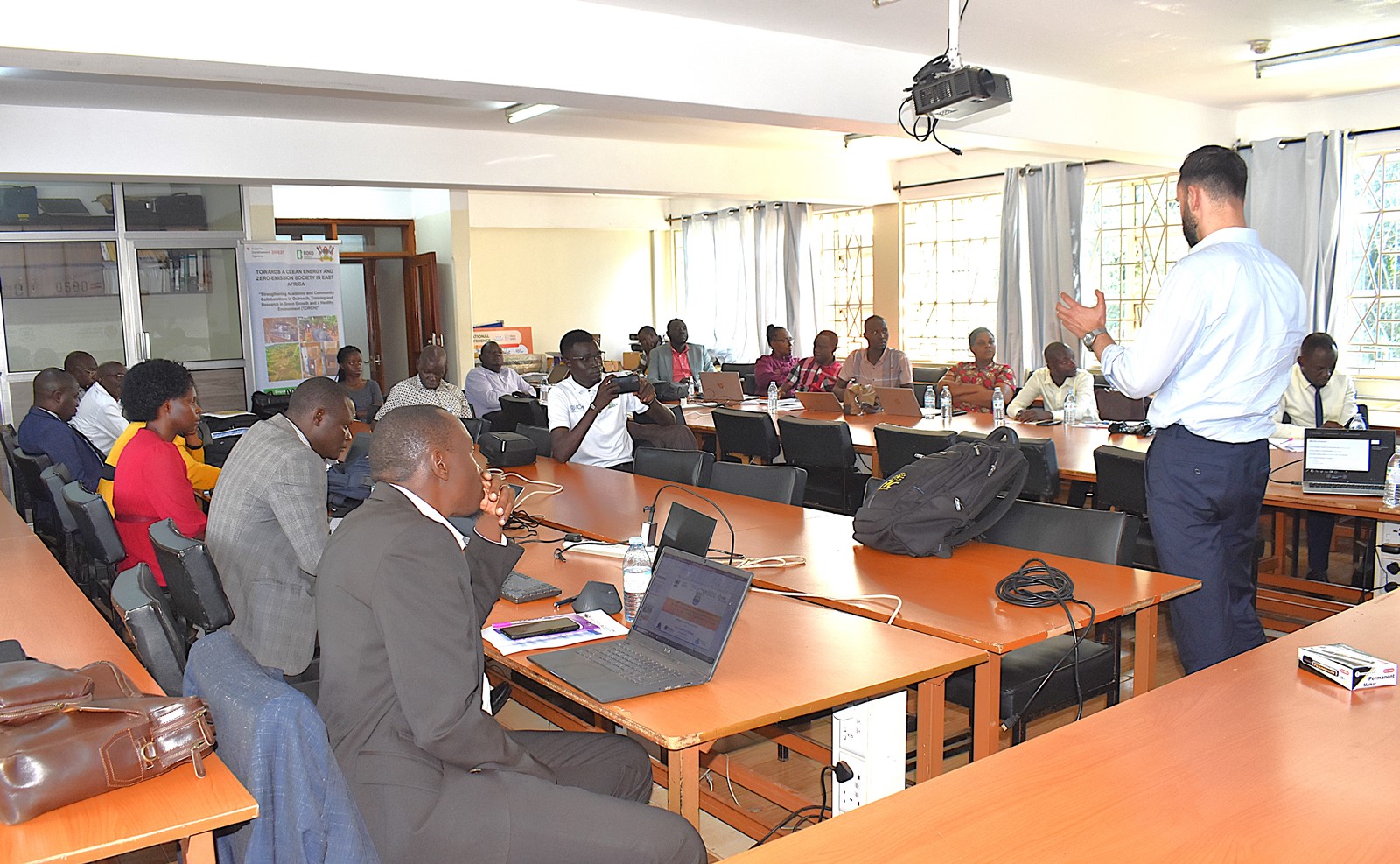
These activities directly contribute to achieving several Sustainable Development Goals (SDGs), including SDGs 4 (Quality Education), 5 (Gender Equality), 6 (Clean Water and Sanitation), 7 (Affordable and Clean Energy), 12 (Responsible Consumption and Production), and 13 (Climate Action), while also reducing health risks and conserving the environment.
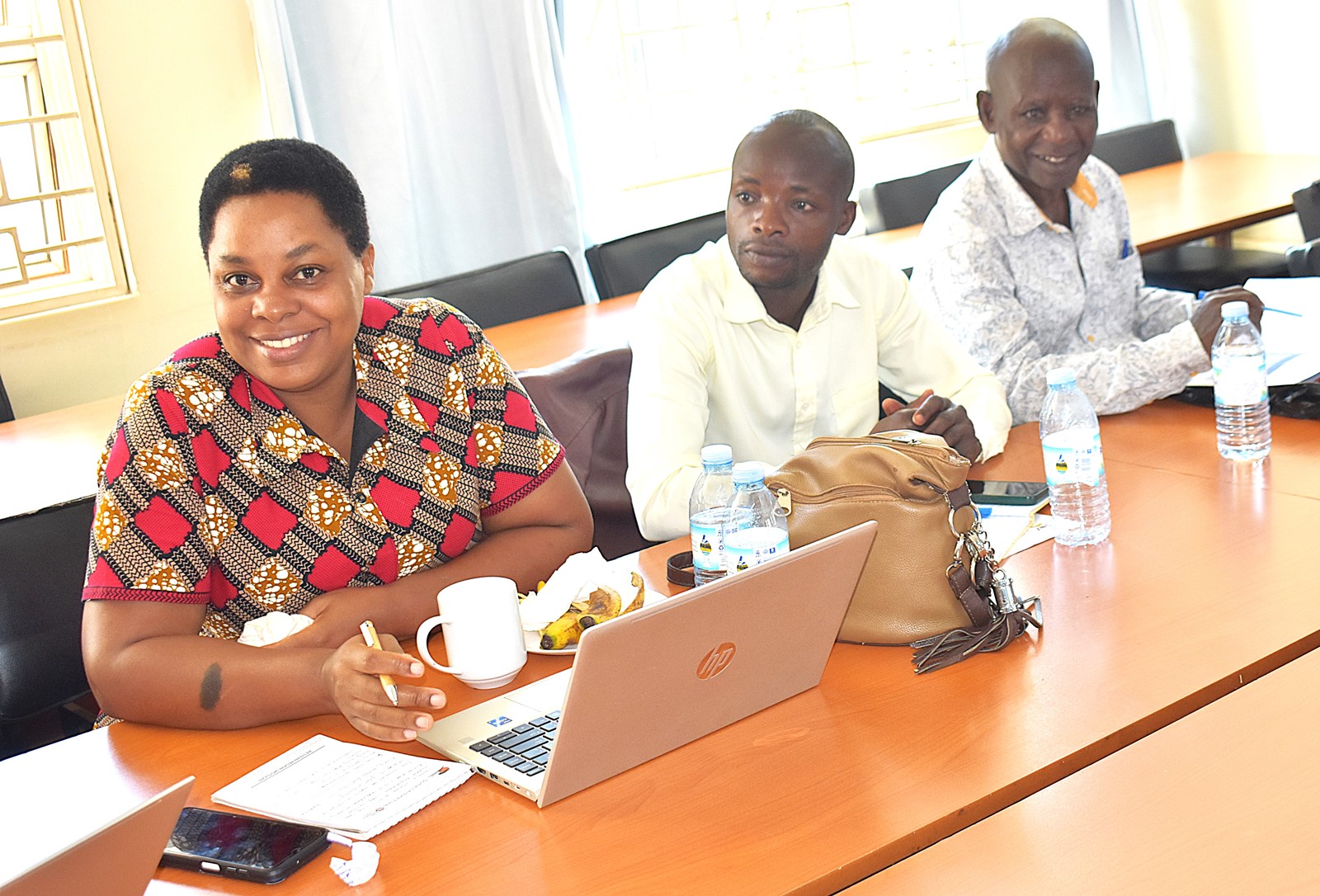
Leadership and Partner Institutions
The overall project coordinator is Dr. Patrick Musinguzi, Lecturer in the Department of Soil Science and Land Use Management at Makerere University. TORCH involves several partner institutions, including: Makerere University (Uganda), University of Natural Resources and Life Sciences, Vienna (Austria), Kabale University (Uganda), Busitema University (Uganda), Kyambogo University (Uganda), and the University of Juba (South Sudan).

Highlights of the Launch Ceremony
During the launch ceremony held in the GIS Lab at Makerere University, and attended by representatives from the partner institutions, Dr. Musinguzi presented an overview of TORCH, outlining key strategies for implementation and expected outcomes. Central to the project’s strategy is the integration of green growth principles into Makerere University’s academic curriculum. This will be formally proposed to the University Management for adoption. Additionally, the project aims to strengthen the university’s research agenda in this critical area. This will involve supporting faculty and student-led research projects and generation of evidence-based insights on green growth to influence policy at both local and national levels. There are also plans to establish three living labs in Central, South Western, and Eastern Uganda to serve as practical hubs for advancing green growth.
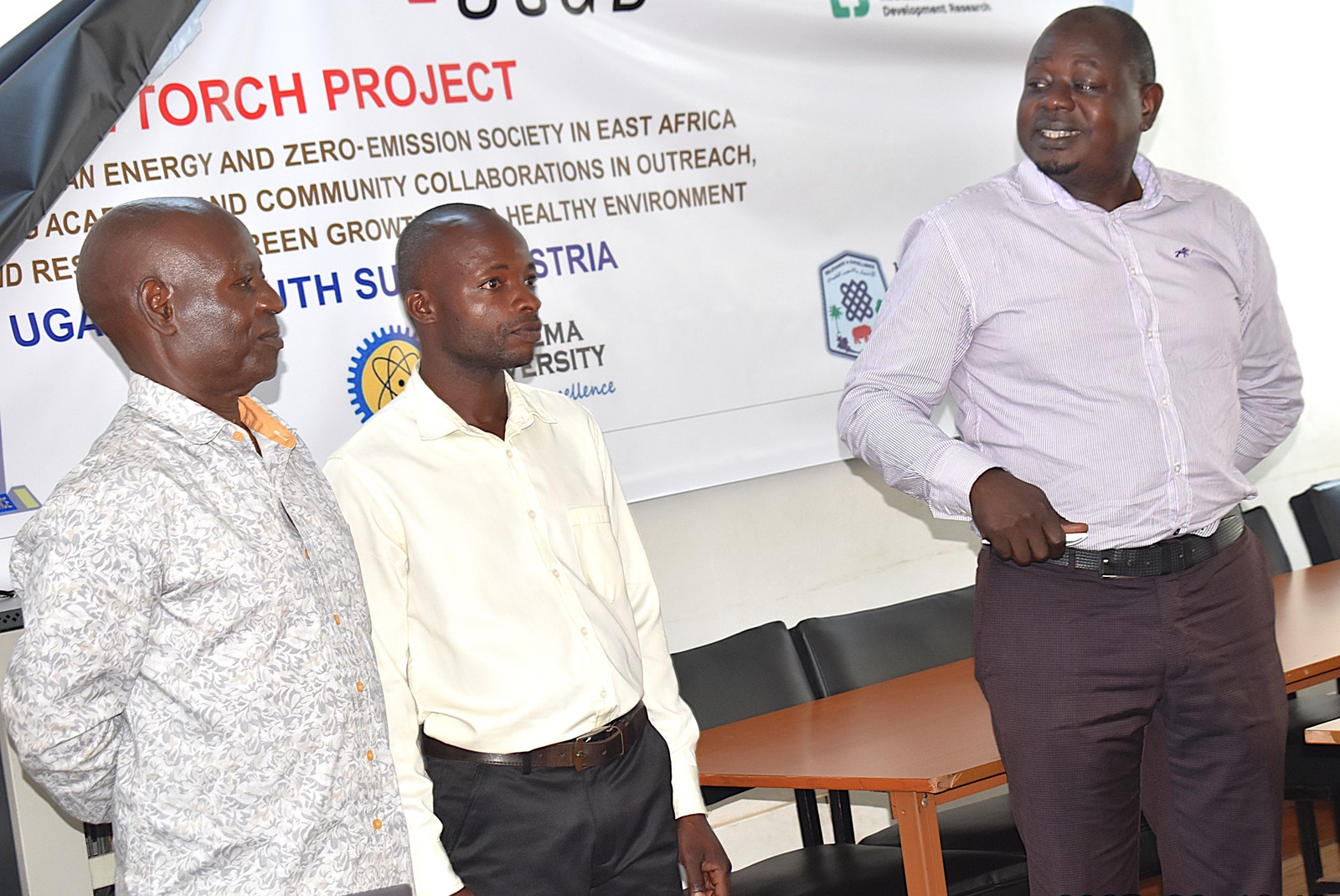
Expert Insights on Community Engagement
In his presentation, Mr. Andreas Bauer from the University of Natural Resources and Life Sciences, Vienna provided valuable insights into the critical role that living labs play in promoting sustainable, green growth. Highlighting practical examples and innovative approaches, Mr. Andreas Bauer emphasized how living labs serve as dynamic platforms for collaboration between researchers, industry stakeholders, and local communities, enabling real-world experimentation and the development of eco-friendly solutions that drive environmental and economic progress.
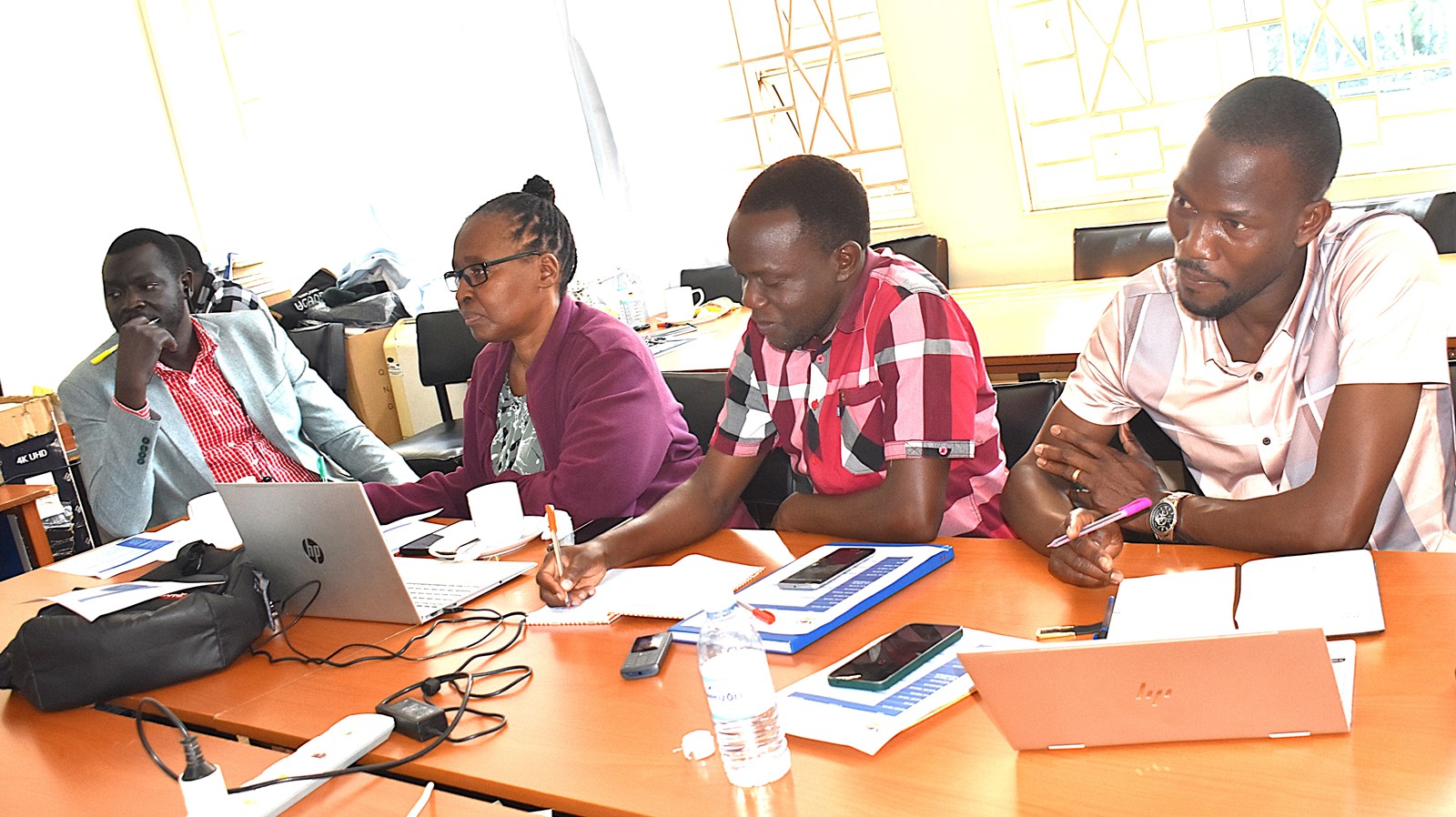
To emphasize the importance of collaboration between local communities and the academia, Mr. Kayanja Susane, a farmer from Kawumu Village in Luweero District, explained that, with guidance and support from the project team, he learned to produce biogas from animal waste -a reliable source of energy that reduces dependence on traditional fuels, subsequently minimizing environmental degradation.
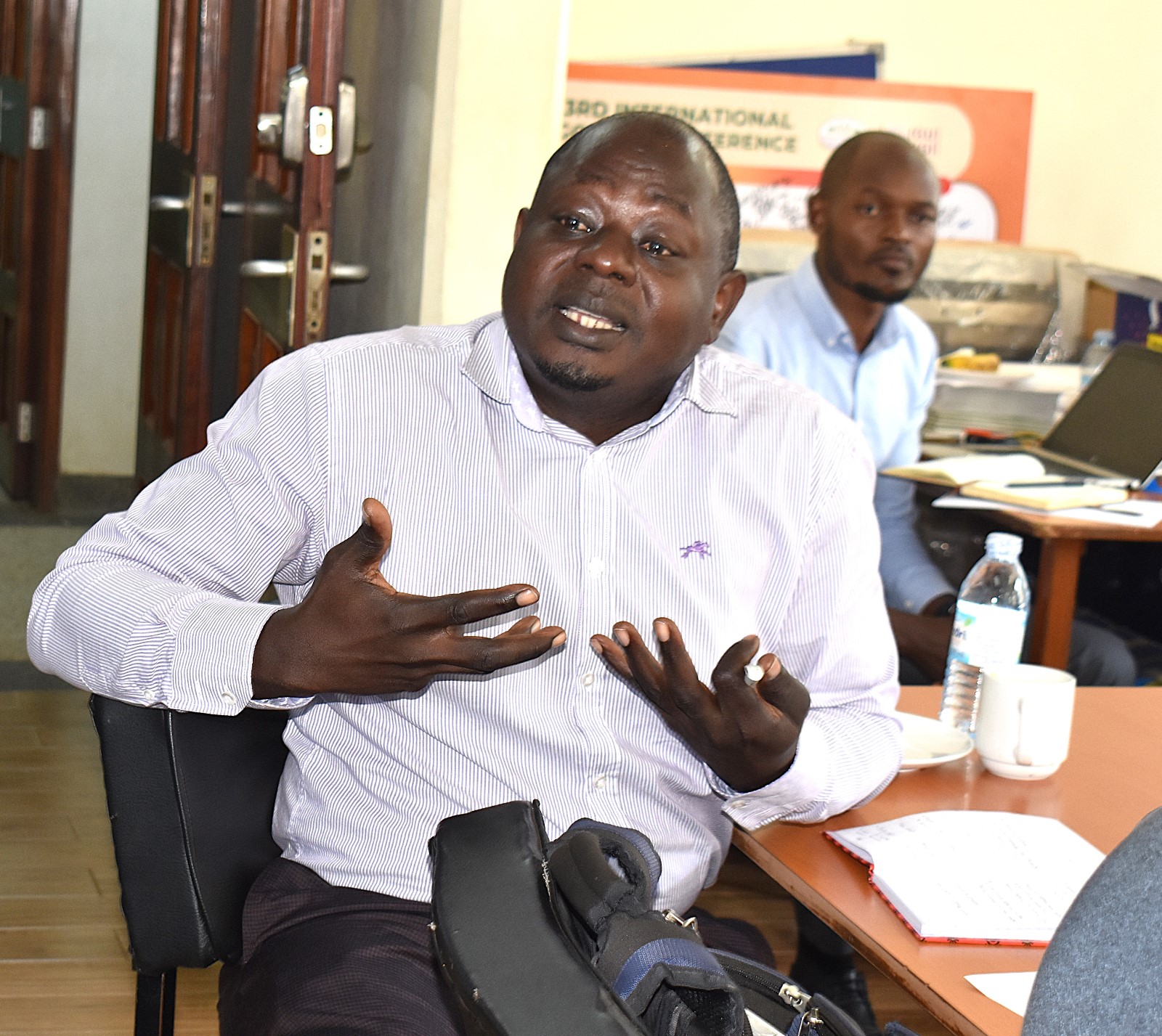
Research Focus
As part of the strategy to guide implementation, the project team brainstormed potential ecological and social indicators of low emissions in homesteads, and proposed several research areas to support green growth. Proposed research areas include:
- Life cycle analysis
- Circular economy practices within homesteads
- Gender integration and the intersection of gender with green growth
- The role of livestock in promoting green growth
- Evaluating the impact of interventions on total emissions
- Barriers to adopting green innovations
- The use of indigenous knowledge in promoting green growth
Addressing the participants, the Principal of the College of Agricultural and Environmental Sciences (CAES), represented by Dr. Paul Mukwaya, Head of the Department of Geography, Geo-Informatics, and Climatic Sciences at Makerere University, commended the project as a timely initiative aligned with the University’s research agenda. He underscored the importance of collaborating with other stakeholders, noting that similar projects have been conducted within and outside Makerere. Dr. Mukwaya called for the adoption of the theory of change framework to ensure the project delivers measurable, sustainable impacts that extend beyond policy briefs and gender mainstreaming, ultimately contributing to lasting green transformation in the region. He expressed appreciation to the project funders for their unwavering support to Makerere University.
Trending
-

 Education1 day ago
Education1 day agoAdmission List to Bachelor of Education External (BED) 2025/26 -Private Sponsorship
-

 General1 week ago
General1 week agoMature Age Scheme Exam Results for 2025/2026
-

 General2 weeks ago
General2 weeks agoFreshers’ Joining Instructions 2025/2026
-

 General4 days ago
General4 days agoUndergraduate Admission List Self Sponsorship Scheme 2025/2026
-

 General2 weeks ago
General2 weeks agoMastercard Foundation Board pays its inaugural visit to Makerere University
